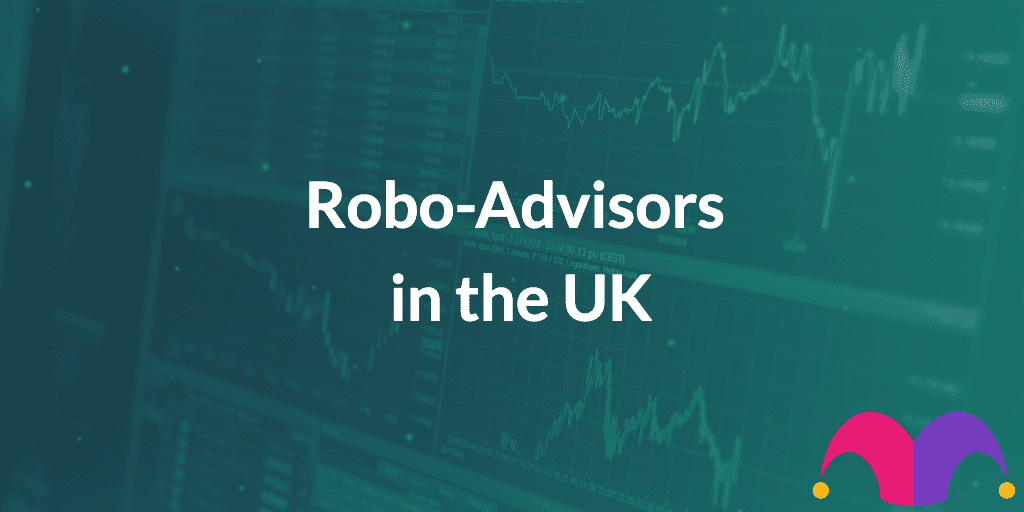Robo-advisors are a simple way to invest for those who don’t want to deal with choosing individual shares, stocks, and other investments. We’ll help you understand how to choose the best robo-advisor for you and where to get started.
The Motley Fool’s Featured Robo-Advisors:
Good for investors seeking a low-cost, fully managed solution
IG Smart Portfolios *
| Account Management Fee | 0.50% – capped at a maximum of £250 per year. |
- Pros & Cons
- Fees & Charges
Pros
- Choice of five investment profiles, ranging from conservative to aggressive
- BlackRock designed asset-allocation, using ETFs
- Reputable broker and portfolio designer.
- Low-cost portfolio management fees.
- Portfolios built by experts at BlackRock.
- Automatic rebalancing and diversification.
- Compatible with SIPP and ISA tax wrappers.
Cons
- £500 minimum initial investment
- No ‘DIY’ option – you can’t invest directly in specific ETFs
- IG’s platform can feel challenging to navigate, compared to offerings from ‘pure-play’ robo-brokers
- No way to customise individual portfolio holdings.
- Limited active control over investments.
- No ESG or ethical investment filters are currently available.
- Not suitable for short-term trading or DIY investors.
- Unsuitable for investors with considerable wealth requiring personalised advice.
- Management fee – IG charges a 0.50% annual management fee, which is capped at £250 per year per account type (e.g., ISA, general investment account, SIPP). This means if your portfolio value exceeds £50,000, you effectively pay no additional management fee above the £250 cap.
- Fund costs – The portfolios are constructed using ETFs, and this cost (known as the total expense ratio, or TER) is built into the funds themselves. The average TER for the ETFs used in IG Smart Portfolios is around 0.13%–0.15% per year.
- Transaction costs – There are no separate trading commissions for rebalancing within the portfolio. However, there are underlying transaction costs related to ETF trading, which IG estimates at around 0.07%–0.09% per year.
- Platform fee – None for IG Smart Portfolio clients. Non-Smart Portfolio accounts incur a flat quarterly fee of £24. This can be reduced to £0 by executing at least three buy or sell trades in a single month.
- Foreign Exchange Fees – Foreign dividends or non-GBP currencies held in the portfolio are converted to GBP at IG’s FX rates, and a 0.7% foreign exchange fee applies on those conversions.
- Deposit fee – None.
- Withdrawal Fee – None.
Great for investors who want a simple and affordable experience
InvestEngine *
| Account Management Fee |
|
- Pros & Cons
- Fees & Charges
- Sign-up Offer
Pros
- No commission fees on trades.
- Low 0.25% platform fees (0% for DIY accounts).
- Vast selection of ETFs (800+).
- Easy and automatic portfolio rebalancing.
- Can invest in fractional shares.
- Support for ISAs and SIPPs.
- Mobile app and web platform access.
- Good customer service with complimentary educational content.
Cons
- LifePlan and Managed Portfolios are temporarily unavailable.
- Can only invest in ETFs (no individual shares, trusts, bonds, gilts, or mutual funds).
- No thematic portfolios (Ethical, ESG, etc.)
- No advanced order types (limit orders, stop loss, etc.)
- No direct phone call option for customer support.
- No virtual portfolio or watchlist.
- Platform fee – None.
- Management fee – 0.25% for LifePlan Portfolios and Managed Portfolios. 0% for DIY portfolios.
- Fund Costs – Since investors are buying ETFs, these instruments incur their own management fees that need to be paid. InvestEngine does not make any money off these fees, and the amount that needs to be paid depends on the ETFs owned in a portfolio. These fees start from 0.03% with the average Managed Portfolio fee sitting at around 0.12% per year. InvestEngine provides a complete list of ETFs and their fees.
- Transaction costs – None. However, InvestEngine does charge a market spread cost averaging 0.07% per year for Managed portfolios and 0.08% for LifePlan portfolios per year.
- Foreign exchange – None. All ETFs offered on InvestEngine’s platform are GBP-denominated. It does not offer any foreign currency support on its platform.
- Deposit fee – None.
- Withdrawal fee – None.
IMPORTANT NOTE: if you click on the links below to read the offer terms and conditions, make sure you return to this page and click on the Apply Now button to ensure the sign-up offers listed below get applied to your InvestEngine application.
SIGN-UP OFFER: open an InvestEngine account through The Motley Fool UK and you’ll get an investment bonus of between £10 & £50 when you sign up and deposit £100 (T&Cs apply)
- This offer is for new InvestEngine customers, and only applies to one Portfolio per customer.
- View the full terms and conditions for this offer.
ISA BONUS OFFER: top-up or transfer to InvestEngine by 6pm on 31/05/24 and receive a bonus of up to £2,500 (capital at risk, T&Cs apply)
Great for investors who want more control over their investment funds
Moneybox *
| Account Management Fee |
|
- Pros & Cons
- Fees & Charges
Pros
- Designed for beginners.
- Earn interest on uninvested cash.
- Round-up feature makes saving effortless.
- Managed and DIY investing options.
- Wide range of investment account types (GIA, ISA, LISA, SIPP).
- Thematic investing options with ESG-managed portfolios.
- Simple and intuitive interface.
Cons
- Exclusively a mobile experience (no desktop web app).
- Management fees are higher compared to other robo-advisor services.
- Limited selection of investments for both stocks and ETFs.
- No advanced charting or trading tools.
- Subscription fee – To access the Moneybox investment features, investors will have to pay a monthly subscription fee of £1, charged at the end of each month. This Subscription fee does not need to be paid if the account is empty.
- Platform fee – In addition to the subscription fee, investors need to pay an annual platform fee equal to 0.45% of the value of their investments. This is charged in instalments at the end of each month. Note that for pensions, this fee drops to 0.15% for balances over £100,000.
- Fund costs – When investing in ETFs, there are additional fund management fees that need to be paid as specified by the ETFs themselves. Moneybox does not make any money off these fees, and the amount charged depends on the ETFs owned in a portfolio. Moneybox has provided a complete list of the funds it offers and their annual fund fees.
- Transaction costs – None. Moneybox does not charge commissions on trades.
- Foreign exchange – When buying or selling US stocks from the UK, Moneybox charges a 0.45% currency conversion fee.
- Deposit fee – None.
- Withdrawal fee – None. However, penalties can apply when withdrawing funds from a Lifetime ISA if certain eligibility criteria are not met.
For investors looking for a straightforward way to invest
Wealthify *
| Account Management Fee | 0.6% per year (deducted monthly). |
- Pros & Cons
- Fees & Charges
Pros
- Fully managed pre-built portfolios based on risk appetite.
- Support for ethical ESG alternative portfolios.
- Backed by Aviva, a reputable FTSE 100 company.
- Simple and jargon-free platform.
- Regular publishing of financial and educational content.
- Fully automated investment platform.
- Low cost relative to alternative platforms.
Cons
- No DIY investing option or ability to pick individual stocks.
- Customisation of portfolios is limited beyond risk profile and ethics.
- Lack of detailed performance analytics and reporting.
- Lack of transparency regarding foreign exchange exposure.
- Management fee – A 0.6% of investment value annual fee that is deducted monthly. This fee drops to 0.3% for a Wealthify Personal Pension account for any value beyond £100,000.
- Fund costs – Since investors are investing in a collection of funds, these incur their own set of fees that have to be paid. These fees can vary depending on the composition of each portfolio and have historically sat at around 0.16% for original plans and 0.7% for ethical plans.
- Transaction costs – None. These are included as part of the Fund costs.
- Foreign exchange – None. These are included as part of the Fund costs.
- Withdrawal fee – None.
- Deposit fee – None.
- Transfer fee – None.
- Account closure fee – None.
What to consider when comparing robo-advisors:
- Fees: All else equal, lower fees are better. Robo-advisors are known for having lower fees than their human counterparts, but it’s still important to know how much you’ll pay to use a robo-advisor. When you pay fewer fees, more of your money can help build your portfolio.
- Portfolio allocation: Whether you prefer a managed or more DIY portfolio, it’s important that robo-advisors have diversified investment options based on your personal risk appetite.
- Platform ease-of-use: Look for robo-advisors that are user-friendly. You’ll want to be able to find information and see the status of your portfolio quickly and easily.
- Customer service: The benefit of robo-advisors in general is taking the human element out of the equation. However, look for robo-advisors that offer the opportunity for human support – like phone, email, or online chat – to answer your questions when you need help.
With these four factors in mind, you’re ready to start looking for the best robo-advisor for you.
Risk Warning
Investments involve various risks, and you may get back less than you put in. Tax benefits depend on individual circumstances and tax rules, which could change.
The value of your investments can go down as well as up and you may not get back all the money you put in. All investments carry a varying degree of risk and it’s important you understand the nature of these risks. Remember that taxes can be complicated and the tax benefits of these products depends on your personal circumstances. Tax rules are subject to change. The Motley Fool believes in building wealth through long-term investing and so we do not promote or encourage high-risk activities including day trading, CFDs, spread betting, cryptocurrencies, and forex. Click here to learn more.
What Is a Robo-Advisor?
A robo-advisor is a digital investment platform that uses algorithms to manage your investments, rather than human fund managers. These platforms aim to simplify investing by automating key processes, making them an accessible option for many investors.
Despite the name, a robo-advisor doesn’t involve an actual robot providing investment advice. Instead, it offers a streamlined way to invest, often at a lower cost than traditional financial advisors. The level of automation varies—some robo-advisors operate with complete automation, while others incorporate human oversight.
How Does a Robo-Advisor Work?
Robo-advisors use sophisticated software to automate portfolio management, offering features like:
- Automatic portfolio rebalancing to maintain your target asset allocation.
- Risk-based investment allocation tailored to your financial goals.
- Adaptive strategies that adjust based on your changing financial circumstances.
These platforms can provide diversified, professionally managed portfolios at a fraction of the cost of traditional financial advisory services.
Are Robo-Advisors Good for Beginners?
Robo-advisors can be an attractive option for beginner investors due to their ease of use. Typically, you only need to:
1.Choose your risk tolerance.
2.Decide how much you want to invest.
3. Let the robo-advisor manage your portfolio.
However, while these platforms can simplify investing, they do not eliminate risk. Market fluctuations can impact returns, and it’s important to understand the risks before investing. Additionally, robo-advisors do not provide personalised financial advice, so seeking independent guidance may still be beneficial.
If you later decide you want more control over your investments, you can transition from a robo-advisor to a traditional brokerage account.
What to Consider When Choosing a Robo-Advisor
When selecting a robo-advisor, it’s important to evaluate the following factors:
- Reputation – Is the platform backed by a well-known financial institution?
- Fees and costs – How do they compare to other robo-advisors?
- Performance – How has the platform’s investment strategy performed historically?
- Ease of use – Is the platform user-friendly?
- Mobile accessibility – Does it offer an app for on-the-go investing?
- Automation options – Can you set up automatic contributions?
- Investment flexibility – What range of assets and investment choices does it provide?
- Tax efficiency – Does it support tax wrappers like a Stocks and Shares ISA?
How Much Do You Need to Start Investing?
The minimum investment required varies across platforms. Some robo-advisors allow you to start with as little as £1, while others have higher minimum deposit requirements.
If you’re starting with a small amount, comparing different platforms can help you find one that fits your budget. Over time, as your wealth grows, you can reassess and switch to a different robo-advisor if needed.
Can Robo-Advisors Beat the Market?
While it’s possible for robo-advisors to outperform the market, it’s uncommon. Most robo-advisors primarily invest in index funds, which are designed to track rather than beat the market. Some platforms offer a broader mix of assets, providing diversification that may help reduce losses during market downturns.
However, higher-risk investments could increase your chances of outperforming the market—but they also come with greater potential for losses. It’s important to note that even professional investors rarely beat the market consistently over the long term.
Can a Robo-Advisor Make You Money?
Robo-advisors can generate returns on your investments, but as with any form of investing, your capital is at risk. Markets fluctuate, and past performance is not a guarantee of future results.
Your potential returns will typically depend on:
- How much you invest – Larger investments can lead to greater compounding returns.
- Investment time horizon – Longer-term investments typically smooth out short-term market volatility.
- Risk appetite – Higher-risk investments have greater potential returns but also increased risk of loss.
- External factors – Economic conditions and market trends will influence performance.
Additionally, robo-advisors charge fees, which can reduce your overall returns. Comparing fee structures across platforms can help you maximise your investment gains.
Frequently Asked Questions
-
Robo-advisor is the term used for digital investment accounts and platforms that are managed by algorithms rather than people, hence the ‘robo’.
Unfortunately a robo-advisor does not mean you get your very own robot mentor. But you do get the next best thing - a simple way to invest your money.
Different accounts that fall under this category will be managed in various ways. Some are completely automatic whereas others might involve some human oversight.
-
These robo-investing platforms work by automating as much of the investment process as possible using computer software. This is why they can be an affordable way to have a managed multi-asset portfolio.
The robo-management of these accounts involves quite a few cool tricks. This includes things such as automatic portfolio rebalancing, investment allocation adjustment to meet your risk tolerance, and the ability to alter your investing approach based on your changing circumstances.
Using a robo-advisor usually means that you can get help with organising your investments without the high price tag that usually comes with such services.
-
They may be due to their simplicity. Often, you just need to select the level of risk you’re comfortable with and how much you’re able to invest. Then, you just let your robo-advisor do its thing. However, its simplicity the potential need to obtain appropriate advice nor should it cloud your understanding of the risks associated with investing.
You can always switch from a robo-advisor platform to a conventional brokerage account at a later stage if you’d like to have greater control over the assets (funds, shares etc) you’re investing your money in. But if you’re just starting out, there’s very few simpler ways of investing than getting a robo-advisor to pick and manage a portfolio for you.
-
It’s possible for robo-advisors to beat the market but it’s not common. Each provider has their own strategy for making money from your investments. So, whether or not your investments beat the market will be partly down to the platform you choose.
Most robo-advisors tend to hold index funds as a key component of their portfolios, which would make beating the market unlikely if they track the market! However, some platforms will let you hold a mixture of assets. This diversification can help to reduce any potential losses when markets aren’t in great shape.
The level of risk you take could also play a role in whether you beat the market or not. Taking on more risk may give you a better chance of beating the market. However, it could also lead to bigger losses if the investments don’t work out.
Do keep in mind that very few funds or even professional investors typically beat the market on a consistent basis.
-
They definitely can, as can a lot of things if you get it right. However, it’s important to take into account the fact that they can’t control or predict the movements of markets which can go up or down, especially in the short-term, and as such you must remember that your capital is at risk and past performance is not a reliable indicator of future performance
You also have to remember that you’ll be paying a fee that will cut into your profits.
How much money you will make will depend on a number of factors such as: how much you’re investing, how long you’re investing for, and how adventurous/risk averse you are with your investment choices. Then, there are certain areas that are out of your control which will play a big part. Such as the wider economy and individual performances of businesses.
Why we work with affiliate partners
We partner with the financial companies that are behind some of the products that are listed on The Motley Fool. We appreciate our partners because, by supporting us, they are helping The Motley Fool bring financial information and education to readers like you.
Affiliate partnerships do not affect our reviews. That means that the reviews that you see on the products reflect our view on that product, not our commercial relationship with the partner. Read more about our approach to reviews here.
Look for the * symbol
When you see an ‘*’ on our site, next to a product name, that means that we partner with that company and when you click that link and sign up for a product, we may get paid for that introduction. So, if you find a product from one of our partners that fits your needs, you should feel free to use the link on our site. Not only does that help The Motley Fool (thanks!), but you can feel comfortable because these links take you directly to the issuer’s website where you can securely apply.




